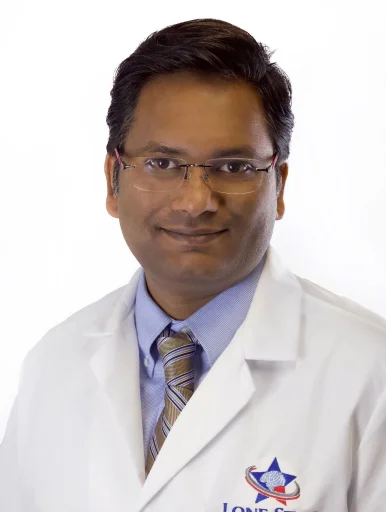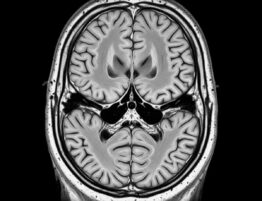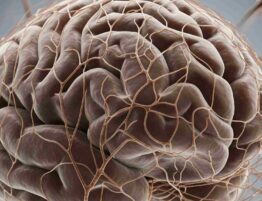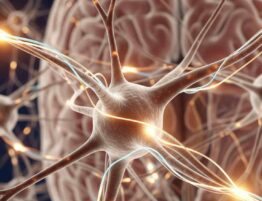Our brains are the marvels that control everything we do, from thinking and feeling to walking and talking. But these delicate organs are susceptible to injury. And even seemingly minor bumps to the head can have lasting consequences.
This article delves into the impact of head injuries on brain health. It explores the different ways a knock on the head can disrupt normal function. We’ll examine the range of effects. We will go from cognitive issues like memory problems and difficulty concentrating to TBI strokes.
We’ll also explore the varying severities of head injuries and how the brain can heal and recover.
Overview of Head Injuries
Head injuries encompass a spectrum of severity. It ranges from the mild bumps of everyday life to life-threatening trauma. They can affect the scalp, skull, and the brain itself. Common causes include falls, accidents, and sports injuries.
Even minor injuries can cause concussions. They disrupt brain function and need monitoring. More serious a head injury can cause skull fractures, bleeding within the brain, and long-term consequences like stroke.
Understanding the different types of traumas is crucial. It’s for recognizing the potential dangers and seeking appropriate attention.
The Brain: Understanding Its Complexity
The human brain is the most complex organ in our body. Even though it only weighs about 3 pounds, it contains a staggering 86 billion neurons. They’re interconnected by trillions of synapses. These connections allow the brain to perform a vast array of functions:
- Processing sensory information (sight, sound, touch, taste, smell).
- Controlling movement and coordination.
- Regulating emotions and moods.
- Forming memories and learning.
- Producing language and thought.
Major Components of the Brain
Before looking at the symptoms of brain damage, let’s break down some major components:
- Cerebrum. The largest part of the brain. It’s responsible for higher-order functions like thinking, planning, and problem-solving. It’s further divided into two hemispheres, each controlling the opposite side of the body.
- Cerebellum. Located at the back of the brain, it coordinates movement, balance, and posture.
- Brainstem. Connects the brain to the spinal cord. It controls vital functions like breathing, heart rate, and digestion.
- Thalamus. Acts as a relay center, processing sensory information and sending it to other parts of the brain.
- Limbic System. Involved in emotions, memory, and motivation.
Head Injuries and Their Immediate Effects on Brain Health
A head injury disrupts the functioning of the brain. The severity depends on the location and force of the impact. Immediate consequences when living with brain injury include:
- Concussion. A mild brain injury that can cause temporary changes in mental state. They are confusion, dizziness, and memory problems. Most concussions resolve on their own. However, it’s crucial to seek medical attention.
- Contusion. A bruise on the brain is caused by bleeding between brain tissues. Symptoms depend on the location and size of the contusion. They include headaches, nausea, vomiting, and speaking issues.
- Hematoma. A collection of blood outside of a blood vessel within the brain cavity. It can cause a range of symptoms, from headaches and drowsiness to coma and death.
Early diagnosis and treatment of head injuries are vital for minimizing long-term complications and symptoms of brain damage.
Short-Term Effects of Head Injuries on Brain Health
Head injuries, even seemingly minor ones, can cause a variety of short-term effects on brain health. These effects can be disruptive and frustrating, but understanding them can help with recovery. Here’s a breakdown of the common short-term consequences.
Physical Symptoms
The main points are:
- Headaches. This is the most common symptom of brain damage. Headaches can range from mild and dull to severe and throbbing. They may be worse with activity and improve with rest.
- Dizziness. This feeling of lightheadedness or unsteadiness can be disorienting. It makes daily activities difficult. Dizziness can be caused by inner ear damage or disruptions to brain regions controlling balance.
- Nausea and Vomiting. These are common after a concussion and can be triggered by movement or bright lights.
- Fatigue. People with head injuries often experience excessive tiredness and difficulty concentrating.
- Sleep Disturbances. Trouble falling asleep, staying asleep, or experiencing restless sleep are common after a head injury.
- Sensitivity to Light and Noise. Increased sensitivity to light and noise can be overwhelming. It contributes to headaches and dizziness.
- Tinnitus. Some people may experience ringing or buzzing sounds in the ear after a head injury.
Cognitive Impairments
Cognitive brain damages are:
- Memory Problems. Difficulty forming new memories or recalling existing ones is a frequent consequence of head injuries. Short-term memory may be particularly affected.
- Concentration Issues. The ability to focus and maintain attention can be significantly impaired after a head injury. People may struggle to complete tasks or follow conversations.
- Information Processing Speed. Thinking and reacting quickly can be slightly slowed down after a head injury. This can make it difficult to react quickly in certain situations or follow fast-paced conversations.
- Decision-making Difficulties. Among cognitive communication deficits, there is the ability to weigh options and make sound decisions. Head injuries can affect them.
- Speech and Language Problems. Slurred speech, difficulty finding words, or problems with comprehension can occur after a head injury.
Emotional Changes
They are:
- Irritability and Frustration. The disruption to normal brain function and the challenges of recovery can lead to increased irritability.
- Anxiety and Depression. Head injuries can trigger anxiety and depression, even in people with no prior history of these conditions.
- Emotional Lability. Rapid mood swings and difficulty controlling emotions are common after head injuries.
- Social Withdrawal. Besides childlike behavior after brain injury, people may experience social withdrawal. It’s due to fatigue, cognitive difficulties, or emotional changes.
Long-Term Consequences of Head Injuries on Brain Health
Many people recover well from head injuries. However, some can experience long-term consequences. Those impact their daily lives. Here’s a look at some of the potential long-term effects.
Chronic Traumatic Encephalopathy (CTE)
It’s associated with repeated injuries. It’s most commonly seen in athletes who participate in contact sports like football, boxing, and hockey. CTE can develop years or even decades after the initial injuries. The symptoms of CTE include:
- Memory problems.
- Difficulty concentrating.
- Irritability and aggression.
- Depression and anxiety.
- Impulsive behavior.
- Speech and language difficulties.
- Cognitive communication deficit.
- Dementia.
Post-Concussion Syndrome (PCS)
PCS is a collection of symptoms that persist for weeks, months, or even years after a concussion. It’s estimated that 10-15% of people who experience a concussion develop PCS. The symptoms of PCS can overlap with those of a concussion and may include:
- Headaches.
- Dizziness.
- Fatigue.
- Sleep disturbances.
- Concentration problems.
- Memory difficulties.
- Childlike behavior after brain injury.
- Irritability.
- Sensitivity to light and noise.
Potential Risk of Neurological Disorders
Research suggests that head injuries increase the risk of developing certain neurological disorders. Some potential associations include:
- Alzheimer’s Disease. Studies suggest a possible link between head injuries and an increased risk of Alzheimer’s disease. Although the exact nature of this relationship is still being investigated.
- Parkinson’s Disease. Research suggests a potential link between head injuries and an increased risk of Parkinson’s disease. It’s particularly for repetitive head injuries.
- Amyotrophic Lateral Sclerosis (ALS). Some studies suggest a possible association between head injuries and ALS. However, we need more research to confirm this link.
It’s important to note that these are just potential risks of cognitive brain damage. And not everyone who experiences a head injury will develop a neurological disorder. However, it’s important to be aware of these potential long-term consequences.
The Impact of Severe Head Injuries on Brain Health
Severe head injuries can have devastating consequences. They cause significant and lasting damage to the brain. Understanding the specific types of injuries and their potential long-term outcomes is crucial. It’s for effective treatment and rehabilitation.
Traumatic Brain Injuries (TBIs)
Here’s a breakdown of some common types of severe head injuries. Don’t just live with these types of brain injury. In case of such trauma, you must visit the doctor:
- Open Head Injury. This occurs when an object penetrates the skull and damages the brain tissue. Open head injuries are at high risk of infection and bleeding.
- Depressed Skull Fracture. This occurs when a forceful impact fractures the skull and pushes bone fragments inwards. It potentially damages underlying brain tissue.
- Epidural Hematoma. A collection of blood between the skull and the dura mater (the tough outer lining of the brain). This can cause increased pressure within the skull and rapid neurological decline.
- Subdural Hematoma. A collection of blood between the dura mater and the arachnoid mater (the middle lining of the brain). This can develop slowly and cause progressive neurological symptoms.
- Diffuse Axonal Injury (DAI). This occurs when microscopic tears develop in the brain’s white matter (nerve fibers). DAI can cause widespread damage and significant functional impairments.
The Long-Term Outcome of Severe Head Injuries
Some potential long-term consequences include:
- Cognitive Impairments. Severe TBIs can lead to cognitive-communication deficits. They affect memory, learning, attention, problem-solving, and executive function (planning, organizing).
- Physical Impairments. People with severe TBIs may experience paralysis, weakness, coordination problems, or difficulty with speech and swallowing.
- Communication Difficulties. Severe head injuries can affect a person’s ability to communicate effectively. It causes problems with language processing, speech production, or understanding of spoken language.
- Emotional and Behavioral Changes. Personality changes, depression, anxiety, and social withdrawal are common after severe head injuries.
- Seizures. People with severe head injuries have an increased risk of developing epilepsy. It’s a condition characterized by recurrent seizures. Besides this, a head injury can even cause a stroke.
Minimizing the Impact of Head Injuries on Brain Health
Head injuries can have significant consequences. However, prompt medical attention, appropriate treatment, and lifestyle adjustments can play a crucial role. They help with minimizing their impact on brain health. Here’s a breakdown of key strategies.
Importance of Immediate Medical Attention
Seeking immediate medical attention after any head injury is crucial. A doctor can assess the severity of the injury. They can find any potential complications and recommend the most appropriate course of treatment. Early diagnosis and intervention can significantly improve outcomes. It helps to cut the risk of long-term problems.
Rehabilitation and Treatment Paths
Depending on the severity of the injury, a doctor may recommend different rehabilitation and treatment paths. Here are some common approaches:
- Physical Therapy. This helps individuals regain strength, coordination, and balance after a head injury.
- Occupational Therapy. This helps individuals relearn daily living skills and activities that may have been impacted by the injury.
- Speech therapy. This helps individuals who experience communication difficulties after a head injury.
- Cognitive Rehabilitation. This helps individuals improve cognitive skills. They are memory, attention, and problem-solving.
- Medication. Medications may manage headaches, sleep problems, or other symptoms associated with symptoms of brain damage.
Following a doctor’s prescribed treatment plan diligently is crucial for maximizing long-term recovery.
Lifestyle Adaptations for Better Brain Health
Adopting healthy lifestyle habits can significantly promote brain health. It potentially mitigates the long-term consequences of head injuries:
- Cognitive Stimulation. Engaging in mentally stimulating activities like puzzles, reading, or learning a new skill can help keep the brain sharp and improve cognitive function.
- Physical Activity. Regular exercise increases blood flow to the brain. It promotes brain health and potentially aids recovery after an injury.
- Sleep Hygiene. Getting enough quality sleep is essential for brain health and cognitive function. Aim for 7-8 hours of sleep per night.
- Healthy Diet. One of the tactics for coping with cognitive brain damage is eating a balanced diet. It must be rich in fruits, vegetables, and whole grains. It provides the brain with essential nutrients.
- Stress management. Chronic stress can negatively impact brain health. Practice relaxation techniques like meditation or yoga to manage stress.
- Wearing Protective Gear. Wearing helmets during sports and activities with a high risk of falls can help prevent head injuries in the first place.
Follow these strategies and work with a healthcare professional. Then, you can optimize their brain health and improve their chances of a full recovery.













Please, leave your review
Write a comment: